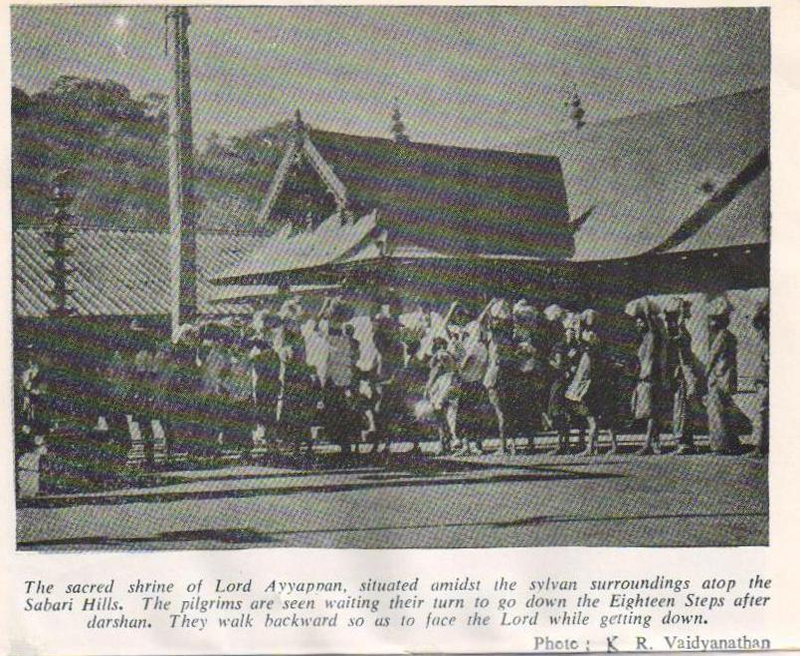Story
The Lord Descends
Nov 2014

Pantalam, a small town in the heart of Kerala, is the chosen and blessed place where Lord Ayyappan, the presiding deity of the Sabari Hills spent His human term of twelve years before fulfilling His divine work on earth. At the time of the epic Pantalam was a kingdom by itself, ruled by Raja Rajasekhara. It was later, when Raja Martandavarma came to power, that this kingdom was integrated with other similar small ones to form Travancore, which is now a part of Kerala State.
Rajasekhara was pious and charitable, a just ruler and God-fearing, held in high esteem by his subjects.
The royal couple were blessed with all mundane happiness except an heir to the throne, Gloom was writ large on their faces owing to the absence of a heir, for no king is happy without an heir to his throne, nor a man without an heir to his property. To whom would he entrust his crown? To whom would he hand over the reins of government? This was a source of perpetual grief to him and his consort and sadly did they spend their lives, not without supplicating God to bless them with their desire. How intense and spontaneous the supplication must have been we leave the reader to imagine, since the Lord Himself chose to come down on earth to fulfil their desire. As time passed the longing for an heir overclouded the pride of royalty.
No man in the world is happy, for desire, endless desire, is the harbinger of happiness, the source of unending misery and perpetual curse to mankind.
Princely recreations may have been many, but the one most common to kings at that time was hunting. Rajasekhara one day decided upon a hunt and, followed by his Dewan and a company of hunters, he found recreation in the chase of wild animals. After a full day’s hunt, he and his party reached the banks of the river Pampa towards evening. The sun stood on the edge of the horizon and the breeze was cool. The river with its small waterfalls and the banks covered with flowers presented a cheerful welcome to the exhausted and thirsty king and his retinue. After quenching their thirst, his men lay down to sleep, while he himself retired to a lonely spot.
Lying down away from his men, the king was enjoying the virgin beauty of Nature and slowly fell into a reverie. He became pensive and then suddenly attentive as he heard a cry close at hand. He said to himself: “That is the cry of a human child. I am certain of it.” He got up and walked in the direction from which it had come, and his Dewan followed him. Not far off he saw a beautiful baby boy lying lonely and helpless on a rock, crying and kicking his legs in the air, his face radiant with the light of a thousand suns. Intensely human as he was, and childless too, the king was overcome with emotion. He thought: “How cruel and heartless the man must be who left this child to its fate in his wild forest!” immediately a second thought occurred: “How could this child have come here since there is no path frequented by men?” Puzzled and surprised, the king stood there, not knowing what to do, whether to carry the child home to his palace or to leave it to its fate. While he was thus debating with himself, unable to come to a decision either way, he was relieved by the appearance of an old Brahmin of radiant countenance whose very presence brought peace and tranquility to place. As tough he had read the thoughts of the king, the Brahmin addressed him, saying: “Why hesitate, Oh! king? Take him to your palace. He will bring your all glory. Do not probe into this secret. You will know all about him after twelve years. Do you not see a gold bell on his neck? Call him, therefore, Manikantha”. With these words, the Brahmin blessed the king and disappeared.
The kindly and encouraging words of the Brahmin relieved the king of his doubts and, taking his advice as a divine order he took the child to his palace, though he did not know that the Bramin was none other that Lord Vishnu himself. The lamp of happiness was now lit in the palace. The former gloom was transformed into immeasurable joy. The queen was jubilant at the gift she received, a gift which she had been longing and praying for.
For the boy was a gift, a rare gift, a boon not only to the royal couple but to the whole Universe; however, little was then known to the world of the incarnation that had come down on earth to fulfil the divine purpose. Nor did the king himself know that the day of his redemption was fast approaching and that the Redeemer had entered his palace. The mode of Divine action is unpredictable and beyond all human imagination. His ways are mysterious.
